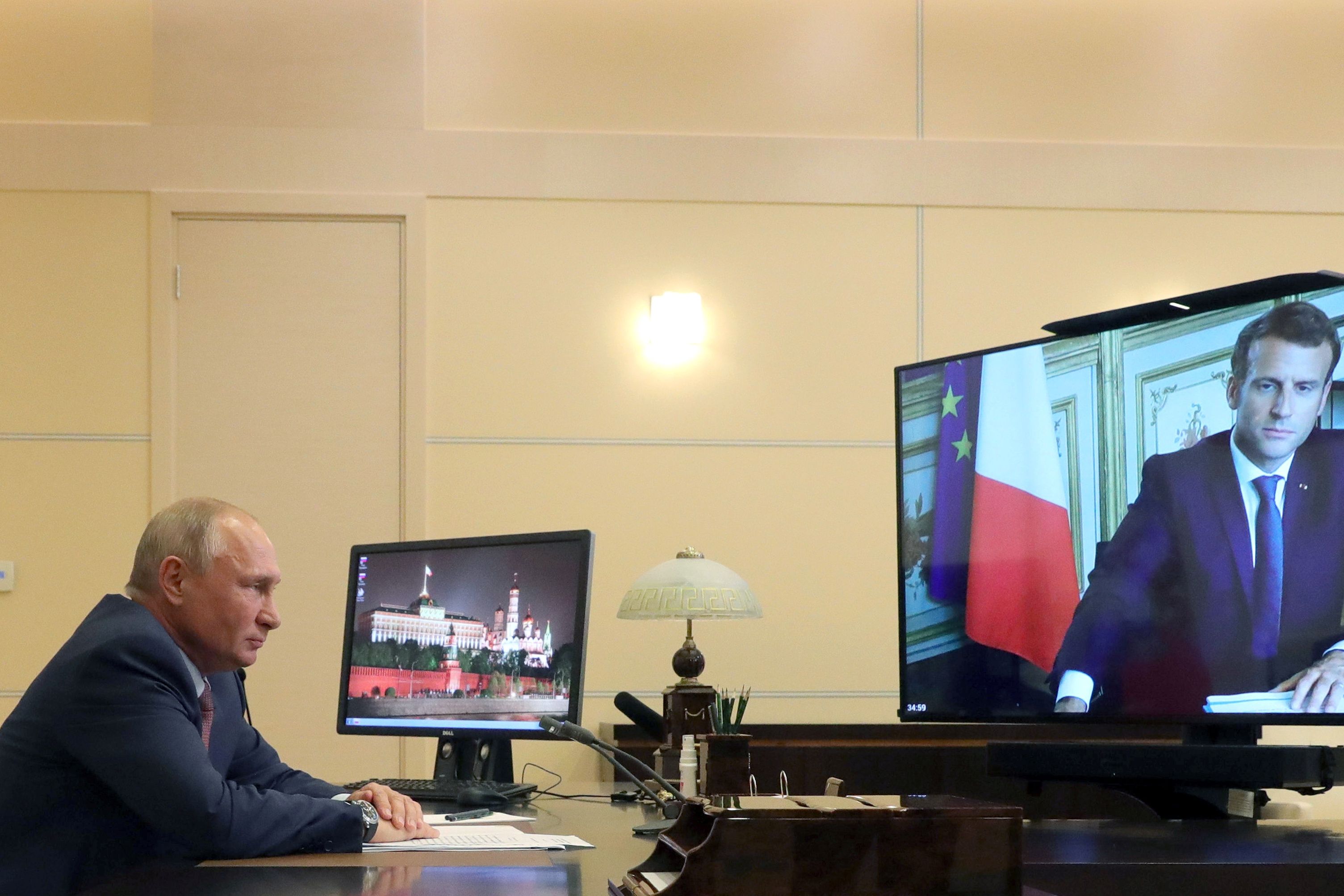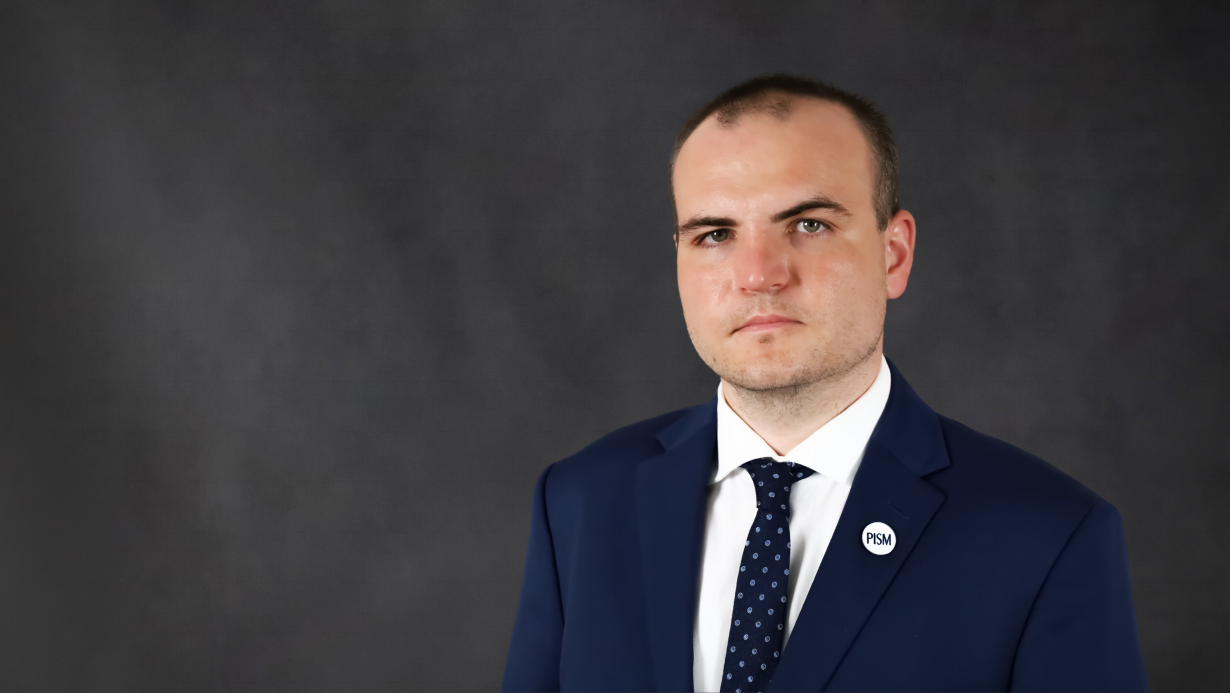Dialogue Above All: France on Russia after the Navalny Poisoning

Despite Russian interference in the French presidential campaign in 2017 with the aim to harm Emmanuel Macron, the newly elected French president decided to initiate a political dialogue with Russia. Macron justified the decision by the growing unpredictability of the U.S., the urgency in the rise of China, and the willingness to resurrect the arms-control discussion. Equally important was to convince Russia to put an end to the conflict with Ukraine, which would pave the way to lifting sanctions and renewing economic cooperation. France also expects Russia to stop interfering in French interests in Africa. Furthermore, in recent weeks, Russia’s position on Turkish expansion near its borders and the political crisis in Belarus have also become matters of concern for France. Although political contacts between France and Russia have been more frequent in the last two years, the dialogue has hardly yielded any tangible result: Russia continues to be confrontational with France in Africa, avoids a conflict with Turkey, and Russian-Ukrainian relations remain frozen. Russia has not withdrawn its support for Alexander Lukashenka either. The recent attempted poisoning of Russian opposition leader Navalny sparked a discussion in France whether Macron’s policy towards Russia needs to be adjusted.
France’s Reactions to the Navalny Poisoning
Back in June, Macron announced that he would pay a visit to Moscow soon after. However, after Navalny’s sudden illness in his home country, it became clear that Russia would not clarify the circumstances despite demands from France and other countries. In response, the previously scheduled Franco-Russian talks of defence and foreign ministers were called off. Macron also postponed his Moscow visit indefinitely. After Navalny had been transported whilst in a coma to Germany, the results of three independent laboratory tests confirmed that Russian President Vladimir Putin’s top opponent had been poisoned with Novichok, a Russian-developed nerve agent. As a consequence, the French MFA in a joint declaration with Germany called for an investigation by the Organisation for the Prohibition of Chemical Weapons (OPCW).
On 14 September in a telephone call, Macron and Putin reportedly had a meaningful conversation. Putin is said to have told Macron that Navalny had simulated illness in the past and may have even poisoned himself. Despite Macron’s reported indignation, the French president’s determination to continue the dialogue with Russia was signalled by those around him. It was confirmed in a long-planned visit—though hastened by circumstances—of Macron to Lithuania and Latvia on 28–29 September. While its purpose was to counter accusations that France was not seriously engaged in the security of NATO’s Eastern Flank, the visit was used by the French leader to highlight his goal of continuing the dialogue with Russia. This statement overshadowed the main result of the visit—the signing of the Declaration on Protection of Democracies in Vilnius by France, Latvia, and Lithuania in response to Russian interference in elections.
Another conciliatory signal to Russia was sent by the French ambassador to Moscow who declared on 30 September that Navalny’s poisoning was a problem for the entire international community but would not influence bilateral relations between France and Russia, and would not harm French attempts to deepen cooperation with Russia in economic and security areas.
A public apology for the dialogue with Russia only a few weeks after the attempted murder of Putin’s main opponent was too much for France and its image, but Germany followed soon with similar declarations: the argument of separating the Navalny case from bilateral relations was used, in one case, by German Foreign Minister Heiko Maas to justify the completion of the Nord Stream 2 (NS2) gas pipeline. On the other hand, France and Germany called simultaneously on their EU partners to impose sanctions on a group of Russian officials and a research institute in Moscow. With Russia having reason to fear that the NS2 construction could be halted or the wealth of the Russian elite in the West frozen, this kind of reaction must have been perceived as moderate, especially since some of the six officials from this newest sanctions list had already been targeted by measures after 2014’s events.
Russia’s Contradictory Signals
France maintains it is ready to deal with Russia, hoping the crisis concerning Navalny will make the latter more ductile. France’s reactions to the protests in Belarus are an example. Since the very beginning of the crisis there, Macron, including during his frequent phone conversations with Putin, has been trying to convince the Russian president to push Lukashenka into negotiations with the opposition. France stresses that the protests do not endanger the alliance of Russia and Belarus.
Cooperation between the EU and Russia on Belarus would be a good opportunity for France to initiate a dialogue about the future of EU-Russia neighbourhood relations. In France’s view of the Eastern neighbourhood, they should be based on the presumption that Belarus, Georgia, Moldova and Ukraine will never become EU members. Although Putin, at the beginning seemed open to the idea of an OSCE-managed dialogue, he eventually publicly supported Lukashenka.
France also expects Russia to take a firmer stance regarding the former’s increasing rivalry with Turkey. Russia has tried so far to avoid conflicts with Turkey, despite clashing interests in Syria, Libya, and the Black Sea region. The fighting in Nagorno-Karabakh and Turkey’s firm support of Azerbaijan in that conflict have created for France an opportunity to test the present attitude of Russia towards Turkey: on 30 September, the first phone call between Macron and Putin took place after a two-week break over the Navalny case. While calling on the two sides of the conflict to agree an immediate ceasefire, the French and Russian presidents also condemned Turkey’s involvement in this conflict. At the same time, however, Russia sent an unofficial signal to Turkey that it is not bothered with this country’s support of Azerbaijan as long as the fighting does not cross the Armenia border. Russia alone has initiated Azeri-Armenian talks, while Macron highlighted his ongoing cooperation with Putin on resolving the crisis in the Caucasus.
Back in France, the murder of French school teacher Samuel Paty on 16 October by a young Chechen raised in France, prompted a discussion about the necessity of better Franco-Russian relations and common antiterrorist actions. On 26 October, the French Minister of the Interior Gérald Darmanin was expected in Moscow to negotiate the readmission of radicalised Russian citizens of Chechen origin. During his speech at the Valdai Club on 22 October, Putin suggested that Russia’s Western partners should apologise for their criticism of the Russian actions in the Caucasus in the 2000s. Darmanin’s visit was called off at the last moment, and on 27 October, Chechen leader Ramzan Kadyrov joined Turkish President Recep Tayyip Erdoğan in a verbal attack on Macron, a result of the latter’s statements on the crisis of Islam and latest French initiatives aimed at limiting the service of foreign imams in French mosques and curbing foreign funding for religious organisations. This does not mean that Russia has adopted a resolute pro-Turkey stance—Kadyrov’s statement was criticised by Putin’s spokesman and on 28 October, a phone call between the Russian and French foreign ministers took place, covering cooperation in fighting terror, among other subjects.
Conclusions and Prospects
The imperative of dialogue with Russia has become an important element of Macron’s foreign policy. Suggesting that France is more able than the other EU or other NATO partners to maintain talks with this country gives the impression—in the eyes of many French diplomats—that France has broader scope for manoeuvre in its relations with the U.S., China, and lately also with Turkey. However, the unpredictability of Russia’s next steps regarding conflicts near its borders and the increasing wave of repression within them exposes France as hostage to the latter’s actions. France’s rather docile stance probably will not discourage Russia from interfering in the French presidential elections in 2022, especially if Macron faces an openly pro-Russian right-wing candidate.
Russia remains sceptical about France’s multiplying proposals for dialogue concerning the former’s neighbourhood. The lack of results in the negotiations on Ukraine, Russia’s resolute support for Lukashenka, and its independent actions towards resolving the conflict in the Caucasus, as well as lenient attitude to Turkey, more than prove it. At the same time, Putin is very avid to maintain contact with Macron, who, by not setting any preliminary conditions for the dialogue, reduces the Russian President’s isolation in his relations with the EU and NATO.


